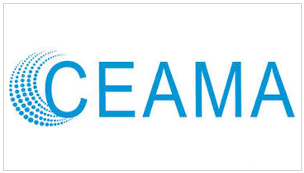The Consumer Electronics and Appliances Manufacturers Association (CEAMA), the apex body representing India's consumer electronics, home appliances, and mobile industries, has put forward several recommendations aimed at boosting domestic manufacturing and addressing key industry challenges
Key Recommendations:
Development of Local Component Ecosystem:
CEAMA urges the government to foster a robust local supply chain by creating a reasonable duty differential between finished goods and their components. This will incentivize local manufacturing.
Phased Manufacturing Program (PMP):
The association recommends initiating PMP, particularly for import-dependent products like Air Conditioners, to progressively localize production and reduce imports.
Review of Free Trade Agreements (FTAs):
Current FTAs (especially ASEAN+ Thailand) are seen as a deterrent to industry growth. CEAMA suggests that future FTAs should focus on consumption-based economies rather than manufacturing-based ones to better protect domestic interests.
Energy Efficiency & GST Issues:
Star Labelling & Energy Norms:
While energy conservation is vital, the industry cautions against tightening energy efficiency norms too rapidly, as it increases production costs and consumer prices. Sales of 5-star models for ACs and refrigerators have dropped sharply due to high prices, with some brands even ceasing production.
Energy Efficiency Table Revision:
CEAMA proposes longer intervals (4 years) between revisions of energy efficiency standards. Upgrades should be considered only if 40% of market throughput attains 5-star rating; otherwise, standards should remain stable.
GST Reduction for Air Conditioners:
The association strongly advocates reducing the GST on ACs from 28% to 18%, stressing that air conditioners are now a necessity, especially due to rising temperatures.
Energy Labelling Expansion:
Mandatory energy labelling should extend to electric fans and desert coolers to fill regulatory gaps.
E-Waste Management & Extended Producer Responsibility (EPR):
CEAMA calls for aligning India’s e-waste rules with international standards.
Currently, 85% of e-waste collection happens informally, with only 15% handled by the formal sector, causing compliance challenges.
The industry recommends:
Staggered collection targets over multiple years for better compliance.
Clearly defining responsibilities for all stakeholders: producers, dealers, refurbishers, bulk consumers, dismantlers.
Empowering local governments to engage and formalize the informal e-waste sector.
The informal sector’s dominance causes disruption in the formal recycling ecosystem, making regulatory compliance difficult for formal recyclers.
Statements from CEAMA Leadership:
“The industry is under pressure and needs government support to recover. Developing a local component ecosystem and revisiting FTAs are crucial. We reiterate our demand to reduce GST on ACs, and emphasize that tackling e-waste requires a collaborative ecosystem involving all stakeholders,” said Mr. Kamal Nandi, President of CEAMA and Business Head & EVP, Godrej Appliances.
This comprehensive set of recommendations by CEAMA aims to protect domestic manufacturing, balance regulatory demands with market realities, and promote sustainable industry growth in India’s consumer electronics and appliances sector.


